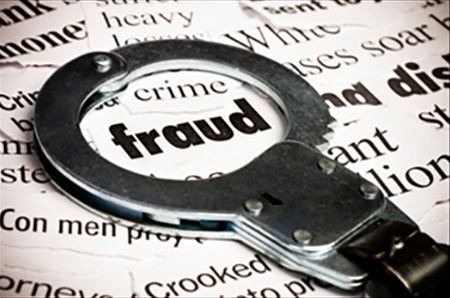Nobody likes being tricked, mislead or ripped off. In fact, it’s illegal. It’s fraud, and that’s a crime.
Here are some common types of fraud you’re apt to encounter on any given day and ways to avoid them:
- Website Misdirection. Buying online can be dangerous, even from trusted retailers. It’s not that those companies are bad,
but sophisticated hackers have found ways to mimic these companies’ checkout pages so when you go to pay for your purchase, you’re unknowingly giving your credit card information to someone else. Whenever you reach a checkout page, make sure to check the website URL at the top of your web browser. Make sure it matches that of the original site and doesn’t contain an odd country extension. - Bad Checks. This is a simple and easy fraud. Someone pays you with a check when there’s actually little or no money in the account. To protect yourself, never take a check that doesn’t include an address and confirm both the name and address against the buyer’s driver’s license.
- Phony Internet Sellers. While surfing the Net, you’re liable to run across items (often name brand watches, jewelry or electronics) being offered at ridiculously low prices. Many of these sellers are phony; they’ll take your money, but never deliver the item. Always check user reviews and ratings before buying online.
- Identity Theft. The fastest-growing type of fraud in the world is identity theft. It occurs when the fraudster uses your credit card or bank account information to buy items and then charge them to you. The simplest way to protect yourself is to destroy by shredding, receipts, bank card statements, credit card statements before throwing them in the trash.
- Charities Fraud. Americans enjoy giving to worthy causes, which is something con artists will take advantage of. Especially around the holidays, you may get emails or phone solicitations asking you to donate to charities. Some may be legitimate, others are not. If you want to give to a charity, never respond to a solicitation. Choose the charity for yourself and donate to them directly.
- Debt Elimination. Many Americans are in debt. If you are in serious debt, you may be tempted by ads by companies that promise to negotiate with banks and credit card companies on your behalf so you can zero your debt for just pennies on the dollar. Many of these scams ask for partial payment up front – often $1,500 to $2,000 – as well as all your credit card information. This service is not real. They will take your money and all your credit card information, which the scammers are now free to use.
In the broadest sense, a fraud is a deception made for personal gain or to damage another individual. The specific legal definition varies. Fraud is both a criminal offense and is also the basis for civil liability. Many hoaxes are fraudulent, although those not made for personal gain are not technically frauds. Defrauding people of money is the most common type of fraud and the type most frequently prosecuted. Contact a lawyer if you feel that you have been the victim of fraud.
Last Updated on April 18, 2017 by The Orlando Law Group








